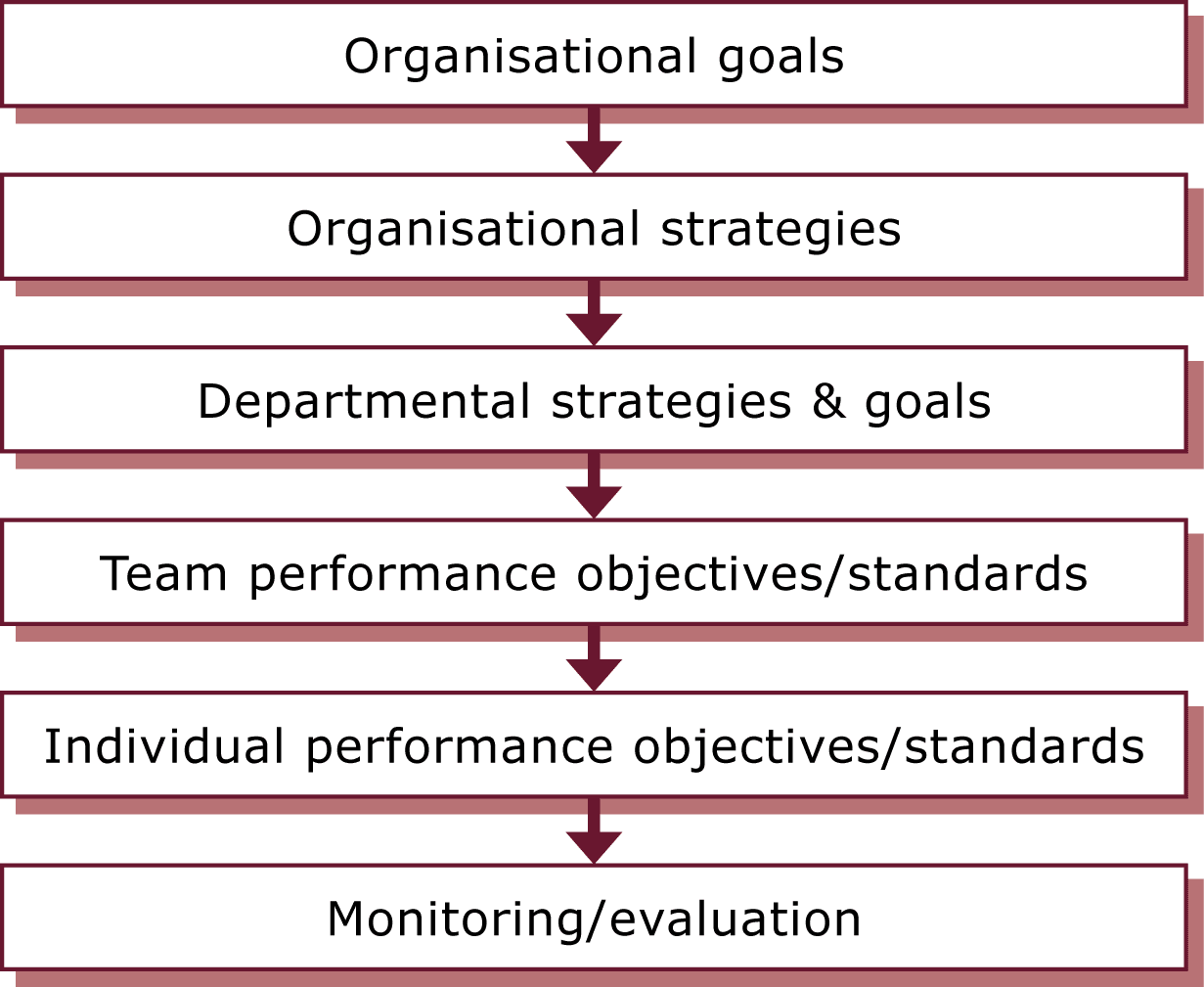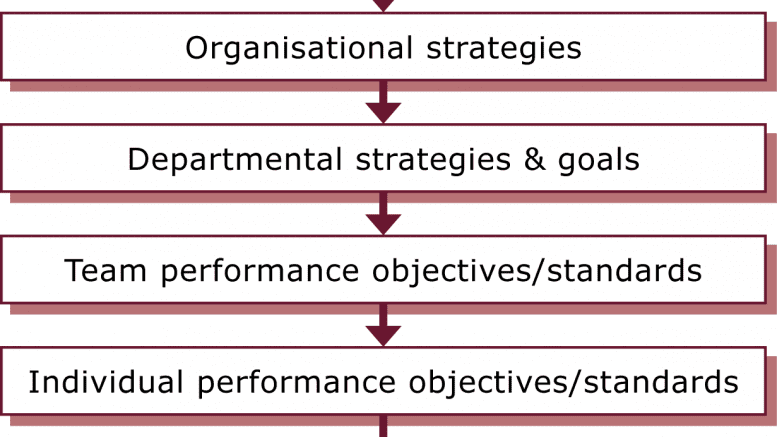What are Organisational Goals?
Explain how a balance has to be maintained between individual and organizational goals.
Organisational goals are based on the values, vision and mission, and describe more specifically the destination that the organisation is aiming for. For example, to provide ‘superb service’ an organisation may develop a goal of ‘achieving an overall customer satisfaction rate of 85%’. Another example might be a goal to achieve ‘excellent results’ by ‘increasing our net profit by 15%’.
- Organizational goals may include survival, growth and development in addition to profitability to productivity, innovation, excellence, etc. A goal describes a high-level target state that an organization desires to achieve over the long-term (three to five years).
- Individual employee goals consist of job security, high salary, attractive fringe benefits, challenging work, pride status, recognition, opportunity for development etc.
- An organization is a means to an end. Thus, an organizational establishes relationships among the employees so that they can collectively contribute to the attainment of company goals. The willing and effective co operation of employees of the attainment or organizational goals is possible through proper direction.
- Classically management is understood as the process of planning, organizing, leading and controlling activities and people towards the achievement of preplanned goals.
- An organization’s strategic goals are set at the top level and these are cascaded down to an individual’s performance goals, which are also categorized into the four perspectives.
- The customer perspective
- The learning and growth perspective
- The financial perspective
- The internal processes
- The following diagram illustrates the process of organisational goals cascading to individual work objectives.

As we discussed previously, individual goals must be related to the goals of the team, the department, and the organisation. Goals are broad statements of intent; they are general and not time-bound. They describe where we are headed if we are fulfilling our purpose. Think of them as ‘the light at the end of the tunnel’.

Let us assume we gave our manager all the resources that she /he needs to perform as effective or efficient boss